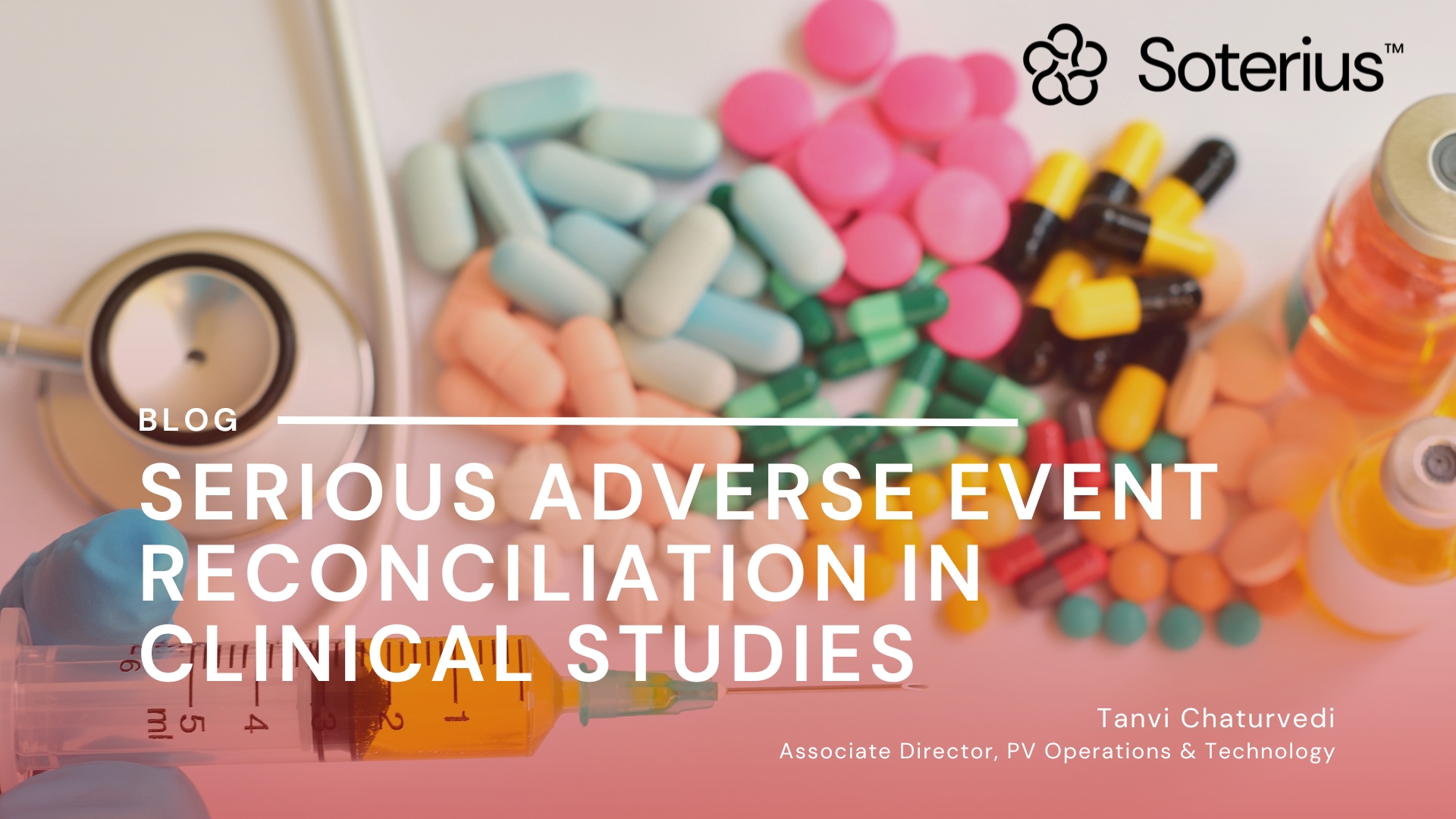
Serious Adverse Event Reconciliation in Clinical Studies
What is Serious Adverse Event (SAE) Reconciliation and why is it required?
The aim of Good Clinical Practice (GCP) and Good Pharmacovigilance Process (GVP) is to keep patients at the centre of drug development efforts and ensure their safety and wellbeing, while at the same time researching more effective, safer cures for diseases. At the juncture of GCP and GVP is the process of SAE Reconciliation, which ensures that the clinical database and pharmacovigilance database are in sync with each other. Completeness and accuracy of data in these two databases is a significant driver in determining outcomes in a clinical trial, affecting clinical reports and safety reports, data management reports, etc. This blog post emphasizes the importance of this critical process in order to achieve better outcomes for clinical trial sponsors and patients alike.
Key Stakeholders in the SAE Reconciliation process
SAE Reconciliation is a group effort by teams that manage the clinical database (i.e., sites, data management), and the safety database (i.e., pharmacovigilance). Support is often required from Clinical Operations in co-ordinating with sites & site personnel in resolving issues that arise, Regulatory in co-ordinating submissions where required, and contract research organizations that may have been contracted by Sponsors in the study.
Manual vs. Automated SAE Reconciliation
SAE Reconciliation may be a manual or automated process, depending on the size of the study population and the volume of adverse event data in a study. Sponsor personnel, along with their Data Management and Pharmacovigilance teams, agree to a list of fields that would be reconciled during the course of a study, and the frequency at which such reconciliation is to be done. Detailed documents, e.g., Data Management Plans may be prepared to document the process, responsibilities & timelines. Regular meetings may be required for parties to clarify any discrepancies that may arise during the SAE reconciliation process.
Frequent challenges faced during SAE reconciliation and their remedial measures
Some frequent challenges include MedDRA version differences, irresolvable discrepancies, disagreement between involved parties, lack of responses from sites, etc. With effective management of the process, and automation tools, where the volumes justify their use, the process efficiency can be maximized, thus bringing about higher accuracy of data across both the databases.
SERIOUS ADVERSE EVENT RECONCILIATION IN CLINICAL STUDIES
Aim: To ensure the completeness and accuracy of the clinical trial data which is the key driver in determining outcomes in a clinical trial, affecting clinical reports and safety reports, data management report.
Here is the updated and organized table as per your request:
GVP SAE Reconciliation and GCP Manual Reconciliation
| Reconciliation Type | Details |
| Manual Reconciliation | – Lower AE volume
– Smaller Studies |
| Automated Reconciliation | – High volume of data to be reconciled
– Larger Studies |
Frequent Challenges
- MedDRA Version Differences
- Irresolvable Discrepancies
- Disagreement Between Involved Parties
- Lack of Response from Sites
Stakeholders Involved in the Process
- Regulatory
- Data Management
- Clinical Operation
- Pharmacovigilance
References
- Bart Cobert. Reconciliation https://lifesciencescare.hcltech.com/blog/reconciliations/
About Soterius
Soterius is a strong team of pharma professionals who design customized, innovative, and cost-efficient processes for clinical safety, pharmacovigilance, and medical affairs. Our deep industry knowledge and up to date insights let us combine agile, people powered intelligence in pioneering customer centric solutions. Our innovative technology solutions include engagement tools and communications platforms to create a unified and compliant medical access facility. With a strong global presence, we provide comprehensive clinical and post marketed safety services, that include aggregate report writing, signal detection and management, global literature surveillance, risk management, case processing and regulatory reporting. We use state-of-the-art technologies to solve complex safety operations problems, be it case processing, intake, site reporting for clinical trials, or literature search and management. We have one of the most accurate solutions for case intake and case processing using AI.
We support companies from the initial development stage of a drug/vaccine to the approval and ultimate marketing of the therapy, supporting ongoing operations and regulatory commitments globally.
